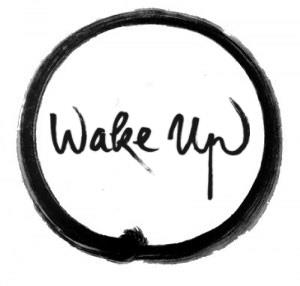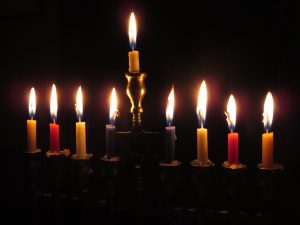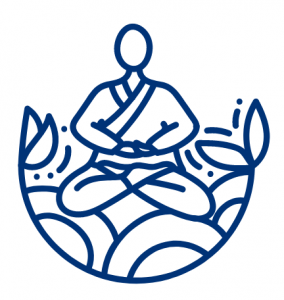Interfaith Week – a personal look into Zen Buddhism
For Interfaith Week we spoke with three people of different faiths to ask what their faith means to them and how it affects their mental wellbeing.
The first of the three is with Ez, who practises Zen Buddhism.
What is your religious/spiritual background and how long have you been practising it?
My religious/spiritual background is mainly in the Zen, Buddhist tradition of Thich Nhat Hanh who is a Vietnamese monk and also a peace activist and poet. I was into meditation a few years before that but I came across his tradition and Buddhism in a big way in the first year of uni when I went to a festival and there was a group from Wake Up, London, which is the young branch of Thich Nhat Hanh’s Plum Village tradition. We did walking meditation and that was the start of beautiful things for me.

What is your favourite religious/spiritual holiday and why?
This is a tricky one, I feel like I’m still getting to know them all, I don’t even know that many Buddhist spiritual holidays, I’m sure there are few, but the ones that came to me are all around light. I remember with fondness growing up in at least a culturally Jewish household and Hanukkah, the festival of light around December time was always a source of warmth and fun. We sang lots of songs and had this cassette player and a tape with all the Hanukkah songs and it lasted seven days and was just really fun and a real opportunity for family connection.
Would you say your faith has a positive influence on your mental health and why?
I’d definitely say that my faith or practise has a positive impact on my mental health. I think it’s got many parts, one would be a sense of community and belonging. I don’t always feel it, as I’m journeying with a sense of belonging up and down, it’s not linear, but it’s offered me this kind of ground from which there’s a real sense of familiarity. No matter where I am in the world, I probably could find a ‘sangha’ which means ‘community’ or ‘family’ of people practising the same tradition and we could sit together and there’s shared practises of walking meditation and dharma sharing, which is sharing from the heart and listening and that really feels like coming home.
Mindfulness and meditation is a process of endlessly remembering to come back
Also the very practise of meditation and mindfulness, is an ongoing journey for me, again it’s like one of the monks said, “mindfulness and meditation is a process of endlessly remembering to come back” and the amount of times I forget, but in some way or another come back. In the last few years, I’ve been finding that mindfulness shows up in ways that feel really easeful and authentic to me. That might include going to a therapeutic dance event, expressive movement or yoga and allowing that to be my meditation has been a huge act of self-care and spaciousness. That framework of mindfulness and meditation has led me into movement practises and a way of being that has had a huge benefit to my mental health, it’s a real resource, helping me be in my body and finding ground in that.
If any, is your faith detrimental to your mental health at all?
I think in recent years, since I’ve been facilitating meditation, that I’ve become more aware of trauma sensitivity and I think some meditation teachers or monasteries aren’t always aware of trauma sensitive mindfulness, so that would be a flag I would put up – an awareness that meditation isn’t in and of itself a perfect thing for everyone. If one is struggling with their mental health, it is important that there’s a real sensitivity to what would be supportive for them, rather than re-traumatising and that might include inviting people to have their eyes open, having a lot of verbal guiding rather than leaving them in silence and things like that. Noticing that for me, any invitations to stay in the body help me, but everyone is different and for some people it’s really scary to enter into their body, if it doesn’t feel safe. So this isn’t really about my faith as such, but the practise of meditation which is core to Buddhism in some way, that needs to be trauma informed, I would say.
Is there a quote or citation from a religious text or religious/spiritual leader that you find particularly inspiring or hopeful at times like these?
There are so many quotes, one of them that really moves me and I’m still unpacking it, is the simple:
Peace in oneself, peace in the world.
Thich Nhat Hanh
What that means to me is that each person is an island, that although we are all connected, we have a capacity to nourish an inner garden and nourish a sense of peace. That is a gift and that is huge! Each person nurturing a sense of peace in them self is then in turn nurturing a sense of peace out into the world and I feel there is such a clamour to change and fix externally, when actually I passionately believe that there is so much non peace inside that is longing to be met with compassion. So if we can meet our inner violence and inner suffering with compassion, that is a very sacred, important microcosm for how we relate to other people suffering and the suffering of mother earth. Inner practise is so important, so as scary as it is to go in, I feel like that is what’s being called of us quite a lot. Coming into the heart and befriending ourselves. It’s not easy but feels so important. Finding whatever it is that brings that sense of peace and stability and grounded-ness in these ungrounded times feels like a huge and important resource.
Posted on: 11th November 2020



